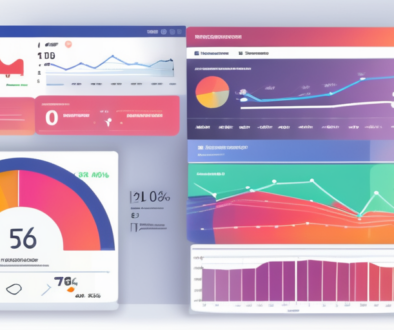Organic or Paid Search: Which Strategy Is More Effective?
In the fast-paced world of digital marketing, the terms “organic search” and “paid search” are often thrown around. But what do these terms actually mean, and how do they differ from each other? In this article, we will delve into the basics of search marketing and explore the mechanisms behind organic and paid search. Additionally, we will discuss the key differences between the two, as well as the pros and cons of each approach. By the end of this article, you will have a clear understanding of the distinctions between organic and paid search, allowing you to make informed decisions for your online marketing strategy.
Understanding the Basics of Search Marketing
Before we dive into the specifics of organic and paid search, let’s first establish a foundation by understanding the overall concept of search marketing. Simply put, search marketing involves the process of driving traffic to a website through search engine results pages (SERPs). This can be achieved through various strategies, including search engine optimization (SEO) and pay-per-click (PPC) advertising.
Search marketing is a dynamic and ever-evolving field that requires continuous monitoring and adjustment to stay ahead of the competition. With search engines constantly updating their algorithms and user behaviors changing, staying on top of the latest trends and best practices is crucial for success in search marketing.
Defining Organic Search
Organic search refers to the natural listings that appear on a search engine results page. These listings are unpaid and are determined by the search engine’s algorithm based on relevance and quality. Organic search results are typically displayed below any paid ads and are recognized by the absence of an “Ad” label.
Optimizing a website for organic search involves various strategies, such as creating high-quality content, building authoritative backlinks, and ensuring technical aspects like site speed and mobile-friendliness are optimized. By focusing on these factors, websites can improve their visibility in organic search results and attract more organic traffic.
Defining Paid Search
Paid search, on the other hand, involves the use of advertising to appear prominently on search engine results pages. Advertisers bid on specific keywords, and their ads are displayed at the top or bottom of the search results, clearly marked with an “Ad” label. Advertisers pay a fee whenever their ads are clicked, hence the term pay-per-click (PPC) advertising.
Managing a successful paid search campaign requires a deep understanding of keyword research, ad copywriting, bid management, and landing page optimization. By continuously analyzing and optimizing campaigns based on performance data, advertisers can maximize their return on investment and reach their target audience effectively.
The Mechanisms Behind Organic and Paid Search
Now that we have a clear understanding of what organic and paid search are, let’s take a closer look at how each mechanism works.
Organic search, often referred to as natural search, is the process of optimizing a website to rank higher in search engine results pages (SERPs) without paying for placement. It relies on the search engine’s algorithm to determine the most relevant and high-quality results for a user’s query. This algorithm takes into account various factors, such as the website’s content, structure, and authority, to determine its ranking. SEO techniques, such as optimizing meta tags, creating quality content, and building backlinks, play a crucial role in improving a website’s organic search rankings.
How Organic Search Works
Organic search results are displayed based on their relevance to the user’s search query, and websites cannot pay to appear in these results. The goal of organic search is to provide users with the most valuable and trustworthy information possible, aligning with the search engine’s mission to deliver high-quality results.
How Paid Search Works
Paid search, on the other hand, operates on a different principle. Advertisers participate in auctions where they bid on specific keywords relevant to their products or services. When a user searches for a keyword, the search engine’s advertising platform conducts an auction among advertisers who have bid on that keyword. The winner of the auction gets their ad displayed in a prominent position on the search results page. The ranking of the ad is determined not only by the bid amount but also by factors such as the ad’s quality score and relevance to the user’s search query.
Paid search offers advertisers more control over when and where their ads appear, allowing for targeted advertising to reach specific audiences. Advertisers can also track the performance of their ads in real-time, adjusting their strategies to optimize results. This form of advertising is known for its immediacy and flexibility, making it a popular choice for businesses looking to increase visibility and drive conversions.
Key Differences Between Organic and Paid Search
Although both organic and paid search aim to drive traffic to a website, there are several key differences between the two approaches. Let’s explore these differences in more detail.
Cost Implications
One of the most significant differences between organic and paid search is the cost implications. Organic search is essentially free, as it relies on optimizing a website’s content and structure to rank higher in the search results naturally. This means that businesses can save a significant amount of money by focusing on organic search strategies. However, it’s important to note that achieving high rankings in organic search results requires time and effort, as it involves consistently creating high-quality content, optimizing meta tags, and building backlinks.
On the other hand, paid search requires a budget to bid on keywords and pay for each click on the ads. The costs associated with paid search can vary depending on the competitiveness of the keywords and the effectiveness of the ad campaign. While paid search can provide immediate visibility and drive targeted traffic to a website, businesses need to carefully manage their budget to ensure they are getting a good return on investment.
Traffic and Visibility
Organic search has the potential to generate a higher volume of traffic compared to paid search. This is because organic search results typically receive more clicks and are trusted more by users, as they are seen as unbiased and unbiased. When users see a website ranking high in organic search results, they perceive it as a credible and reliable source of information. As a result, they are more likely to click on the organic listing and visit the website.
Paid search, while providing immediate visibility on the search results page, may not always receive the same level of clicks as organic listings. This is because users are aware that paid ads are placed there by advertisers who have paid for the position. While paid search can still drive targeted traffic to a website, businesses need to carefully craft their ads to make them relevant and appealing to users, increasing the likelihood of clicks.
Trust and Credibility
Another important distinction between organic and paid search lies in trust and credibility. Organic search results are viewed as more trustworthy and credible by users, as they are earned through relevance and quality. When a website appears in the organic search results, users believe that it has earned its position by providing valuable and relevant content. This trust and credibility can significantly impact user behavior, leading to higher click-through rates and increased engagement.
Paid search, on the other hand, may be perceived as more promotional and less trustworthy, as advertisers are paying to appear in prominent positions. However, this perception can vary depending on the targeting and quality of the paid ads. Advertisers who create highly relevant and valuable ads can still build trust and credibility with users, leading to successful ad campaigns. It’s important for businesses to carefully craft their paid ads to align with user intent and provide a positive user experience.
Pros and Cons of Organic Search
Now that we have explored the key differences between organic and paid search, let’s take a closer look at the pros and cons of organic search.
Organic search is a fundamental aspect of any successful digital marketing strategy, offering a range of benefits that can significantly impact a website’s performance and visibility on search engine results pages (SERPs). By focusing on optimizing for organic search, businesses can tap into a wealth of opportunities to enhance their online presence and attract valuable organic traffic.
Benefits of Organic Search
- Free traffic: Organic search results can generate traffic without incurring additional costs, making it a cost-effective strategy for long-term success.
- Higher trust and credibility: Organic search listings are perceived as more trustworthy and credible by users, increasing the likelihood of clicks and conversions.
- Long-term sustainability: Once a website achieves a high organic search ranking, it can continue to receive traffic without ongoing investment.
Moreover, organic search results are known to drive higher click-through rates (CTRs) compared to paid search ads, as users often trust organic listings more and perceive them as more relevant to their search queries. This increased trust can lead to improved user engagement, longer session durations, and ultimately, higher conversion rates for businesses.
Drawbacks of Organic Search
- Time and effort: Achieving and maintaining a high organic search ranking requires ongoing optimization, content creation, and link building, which can be time-consuming and labor-intensive.
- Dependency on algorithm updates: Search engine algorithms are constantly evolving, meaning that a website’s organic search ranking can fluctuate due to algorithm updates.
- Competitive landscape: Organic search results can be highly competitive, especially for popular keywords, making it challenging to rank higher than competitors.
Despite its numerous advantages, organic search also presents challenges that businesses need to navigate effectively to maximize their organic search performance. Staying abreast of algorithm changes, conducting regular SEO audits, and adapting to shifts in search trends are essential to maintaining a strong organic search presence in an ever-evolving digital landscape.
Pros and Cons of Paid Search
In contrast to organic search, paid search also has its own set of advantages and disadvantages. Let’s explore these pros and cons.
Advantages of Paid Search
- Immediate visibility: Paid search allows advertisers to achieve immediate visibility on the search results page, driving traffic and potential conversions right away.
- Highly targeted advertising: Paid search offers advanced targeting options, allowing advertisers to reach their desired audience based on factors such as demographics, interests, and location.
- Control over ad messaging: Paid search gives advertisers complete control over their ad messaging, allowing them to highlight specific features, promotions, or unique selling points.
Disadvantages of Paid Search
- Costs can add up: Paid search requires a budget, and the costs can accumulate quickly, especially for competitive keywords or poorly optimized campaigns.
- Dependence on ongoing investment: Unlike organic search, paid search requires continuous investment to maintain visibility and traffic to the website.
- Potential for ad fatigue: If not managed properly, paid search ads may become repetitive or irrelevant to users, leading to ad fatigue and lower performance.
While the advantages and disadvantages mentioned above provide a solid understanding of paid search, it’s important to delve deeper into the intricacies of this marketing strategy. One additional advantage of paid search is the ability to track and measure the performance of campaigns with great precision. Advertisers can analyze data such as click-through rates, conversion rates, and return on investment to optimize their campaigns and achieve better results over time.
On the other hand, one potential disadvantage of paid search is the fierce competition for top ad placements. In highly competitive industries, advertisers may find themselves bidding against each other for the same keywords, driving up costs and making it more challenging to achieve a profitable return on investment. It requires careful research, strategic planning, and ongoing optimization to stay ahead of the competition and make the most out of paid search advertising.
In conclusion, the difference between organic and paid search lies in their mechanisms, costs, traffic, and trust factors. Organic search offers cost-effective long-term sustainability with higher trust and credibility, while paid search provides immediate visibility and highly targeted advertising. Each approach has its own set of pros and cons, and the choice between organic and paid search ultimately depends on your marketing goals, budget, and target audience. By understanding the distinctions between the two, you can create a balanced search marketing strategy that maximizes the benefits of both approaches for your business.



